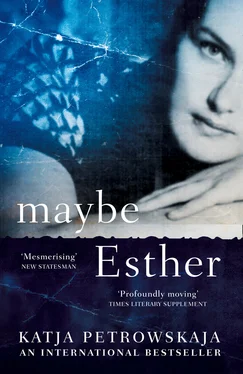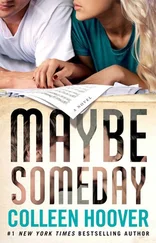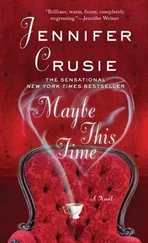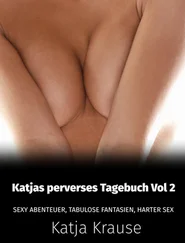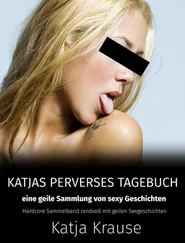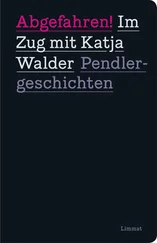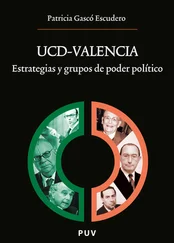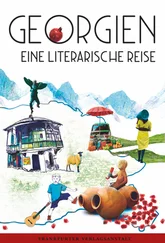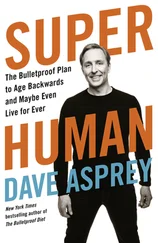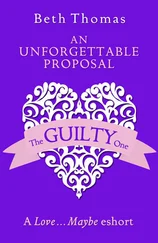Later on, the families of the American consulate staff moved in, and once, on July 4, they ran up a big American flag on their balconies, as though they had conquered our castle. In 1977, when the flamboyant and boisterous Florence soccer team came to Kiev, our street had a second ceremonial opening, although we had been living there for a long time. The Italians were surprised to discover us in our Kievan Florence, as though we were Native Americans being discovered by Europeans. What a piece of news that people live here! The plaque was taken down from one side of our building and attached to the other.
The building was full of women who had moved from villages to the city in their youth. As they grew older, they began to forget their hastily learned and never fully rooted Russian and sank back into the embraces of their warm Ukrainian. When they retired, they pulled out their floral headscarves, with the knot facing forward, and looked so rustic that it was hard to imagine that they’d ever taken them off. They gathered downstairs on the bench in front of the fourteen-floor colossus, shelled sunflower seeds, and exchanged the latest gossip. One of the few elderly men who lived in our building—the men died decades before the women—sat on the balcony somewhere quite high up and played folk songs on the accordion that resounded mournfully across our monumental courtyard and accompanied us as we went our various ways.
I knew very few of the neighbors, and even they were just passing acquaintances. One couple, a charming woman and her husband, a military doctor, always moved with grace and dignity. We did not know quite what to make of their daughter, and we never approached her; we knew nothing back then about Down syndrome. In those days, no one kept such a child at home—maybe it was even prohibited—but the other residents, held back by timidity and admiration of the family, never indulged in idle gossip. My mother told me that the beautiful woman was an orphan from the Spanish Civil War who had been brought to the allied Soviet Union in the late 1930s.
I got to know two other neighbors, both of whom were born during the war year of 1941: Sergey, a war orphan from Ossetia, and Vadim, who was raised by partisans in Polesie. In the other wing lived Boris, a talkative man of an indeterminate age, always cheerful and forthcoming, the only one who had crawled out of the mass grave in a small Jewish town in 1941 when all other residents, from young to old, were murdered. Only much later did I find out that the uncanny monster that we girls in the courtyard between the long rows of high-rises had always feared—we called him The Madman—was the son of the fragile Boris, and maybe the final offspring of the vanished Jewish town.
Sometimes letters were addressed to us at Venice Street, Ulitsa Venetsii. Our building was situated on a canal, which not all letter writers knew. The letters arrived, because there was no Ulitsa Venetsii in Kiev, and so we were responsible for all of Italy. Because of this Venice, water came pouring into my dreams and flooded everything in them, but rescue always arrived when the water had risen as far as my seventh floor, always in the form of a golden gondola from a misty distance that came for me alone. I gave no thought to the neighbors drowning below me, forgetting them in my dreams.
Three floors below us there lived the lonely Makarovna, an elderly Ukrainian villager who had survived collectivization as a child only to lose her parents and fiancé in the war. For years she sat on the bench in front of our building in slippers and a headscarf. She was the feistiest of all, the brashest and unhappiest, always tipsy, sometimes amusing but never cheerful, and she gave us children candy so old it seemed to have dated back to the war provisions of last resort. In her bright yellow headscarf with shiny flowers in maroon and green, in her dark blue dressing gown—the retired woman’s uniform—and a look of intensity in her faintly bulging eyes, she struck me as one of the last of the strong, wild, beautiful people that had once settled here at the threshold of the Ukrainian steppe. Later she gave me all kinds of superfluous things, felt boots for infants or thickly embroidered handkerchiefs, which I have kept to this day; she gave things away because she needed money, but I didn’t understand that back then. From time to time she recounted jumbled bits and pieces about the war, family members who had died, and the collective farms known as kolkhozy, but either I hadn’t been paying enough attention or her delirium was making her mix up the Soviet catastrophes; in any case the years did not match up. In some accounts her family died in the war, but in others the family starved on the kolkhoz, and her fiancé had never come back, or had never existed, as I secretly feared. The war was to blame, that was the only part that was certain.
I wanted to go back up and look at the bicorne that Napoleon lost at Waterloo, but my daughter dragged me down to the ground floor for the twentieth century. I sought to distract her with Dürer and Luther, but in vain; she brought me to the 1920s, where we raced through the strikes, the hunger, and Berlin’s golden age, for she wanted to go on, to go there , and as we neared the 1930s, I tensed up. She pulled me along to join up with a tour for adults; Let’s not, I said, but she reassured me, I know the score, Mama, and her comfort with the subject discomfited me more than her knowledge. She was eleven. We strode through the seizure of power, the ban on forming associations, the persecution of Communists, and when we were standing in front of the chart with the Nuremberg Laws and the tour guide—the Führerin , funny that’s the word for the woman doing this job, she was just in the middle of talking about the Führer—launched into an explanation of who, and what percent, my daughter asked me in a loud whisper, Where are we here? Where are we on this chart, Mama? The question really ought to be asked not in the present tense but in the past, and the subjunctive: where would we have been if we had lived then, if we had lived in this country—if we had been Jewish and had lived here back then. I know this lack of respect for grammar, and I, too, ask myself questions of this sort, where am I on this picture, questions that shift me from the realm of imagination into reality, because avoidance of the subjunctive turns imagination into recognition or even statement, you take another’s place, catapult yourself there, into this chart, for example, and thus I try out every role on myself as though there was no past without an if , as though , or in that case .
Where are we on this chart, Mama? my daughter asked. I was frightened by her directness, and to protect her from being frightened, I hastened to reassure her that we were not on it at all, we would have been in Kiev by that point or already evacuated, and by the way we weren’t even born yet, this chart has nothing to do with us, and now I had almost said if , but , and as though after all, when a man from the guided group turned to me and said, By the way, we have paid.
Even before I understood that he was telling me that the guided tour was not free of charge and that he thought that I too should pay or we would be freeloaders, my daughter and I, as though we had filched this eight-euro history, although, thanks anyway, I would not filch this kind of thing, so before I understood that without paying we had no right to stand in front of the chart or on it, that we had come to the paying circle too late; even before or as I thought all of that, tears came to my eyes, although I wasn’t crying at all, something was crying in me, I was cried for, and also the man was cried for within me, although he had no need of it, because he was in the right, we hadn’t paid, or rather, we actually had, but there is always someone who hasn’t.
Читать дальше
